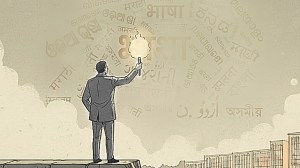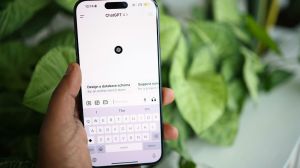Retroactive immunity way out of diplomatic deadlock
State Department device grants foreign officials full immunity for their actions.
There could be a relatively easy way out of the current mess for both Devyani Khobragade and the US State Department: retroactive diplomatic immunity. Its a rare but not unprecedented State Department device to grant foreign officials full immunity for their actions even if they werent entitled to such broad protection when they committed the supposed misconduct.
vienna conventions
Diplomats and consulate officials are covered by two different international treaties,the Vienna Convention on Diplomatic Relations of 1961 and the Vienna Convention on Consular Relations of 1963. Consulate personnel are protected just for actions connected to their official duties. If Khobragade had been an Indian diplomat,she could not have been arrested for mistreating household staff,but a deputy consul is not immune from those charges because theyre not related to consulate work.
After the arrest,India appointed Khobragade to its permanent United Nations mission. Her lawyer Daniel Arshack told Reuters that the transfer clothes her in diplomatic immunity,which provides immunity for acts before or after the appointment. In a text message,he cited a section of the State Department guide saying in part: Criminal immunity precludes the exercise of jurisdiction by the courts over an individual whether the incident occurred prior to or during the period in which such immunity exists.
But the issue is more complicated than that. There are two questions here: Is Khobragade entitled to full diplomatic immunity by dint of her appointment by India to a post at the UN? And if she is entitled to broad protection,is the immunity retroactive?
Under the Vienna Conventions and US law,it is up to the United States to decide whether to credential Khobragade as a full diplomat entitled to broad immunity.
the Abdulaziz case
By itself,Indias designation is not sufficient. Theres federal precedent on this point: In 1997,Gambia asserted that a special advisor to one of its missions in the US was immune as a diplomat from criminal bribery charges. Federal prosecutors said he hadnt been designated a diplomat by the State Department. US District Judge Michael Moore ruled that the Gambian official wasnt entitled to full immunity because he wasnt credentialed by the State Department. The official pleaded guilty and theres no record of an appeal by Gambia.
State Department deputy spokeswoman Marie Harf said in a press briefing Wednesday that it was premature to discuss any change in the consulate officials immunity because the US government has not been notified of her new appointment. She also said that the State Department would have to sign off. It is not an automatic thing by any means, she said.
But lets assume that the State Department,which has clearly been rattled by Indias rage at Khobragades treatment,agrees to credential her as a full diplomat. Does her immunity reach back to shield her against actions predating her new appointment? It can,according to Peter Rutledge,associate dean of the University of Georgia School of Law and an expert on international dispute resolution. Retroactive diplomatic immunity,Rutledge said,is quite rare but its not unprecedented.
The best-known example dates back to 1982,when Miami-Dade police officers attempted to search the home of Prince Turki Bin Abdulaziz of Saudi Arabia,who was suspected of holding an Egyptian woman against her will. At the time of the raid,in March 1982,Abdulaziz had no diplomatic credentials. He did have a burly security staff,which scuffled with police and fended off execution of the search warrant on the princes home. Abdulaziz and his family sued Dade County for violating their civil rights. County officials countersued,claiming they were injured in the scuffle with the princes staff.
court endorsment
In April 1982,about three weeks after the failed search,the State Department granted Abdulaziz and his family full diplomatic immunity. The prince withdrew his suit against Dade County and moved to dismiss the countys counterclaims,arguing that his diplomatic status shielded him from the suit.
Despite arguments by Dade County that Abdulaziz hadnt been a credentialed diplomat when his guards blocked police from entering his house,the 11th Circuit Court of Appeals upheld dismissal of the counterclaims,holding that the prince had been eligible for diplomatic status at the time of the botched raid,even if he hadnt yet received it. In effect,the ruling endorsed the concept of retroactive immunity.
The Khobragade case has some clear distinctions,especially because the State Department has been involved with her investigation since at least early September,when,according to spokeswoman Harf,US officials first alerted Indian authorities of allegations against their deputy consul general.
It was also diplomatic security officers who arrested Khobragade,not local cops without foreign policy sensitivity. For all we know,the State Department intended to send a message to the international diplomatic corps,which is often accused of cloaking itself in diplomatic immunity to avoid claims of mistreating domestic staff.
On the other hand,retroactive immunity would quell Indian outrage and permit the State Department to save face.
- 01
- 02
- 03
- 04
- 05































